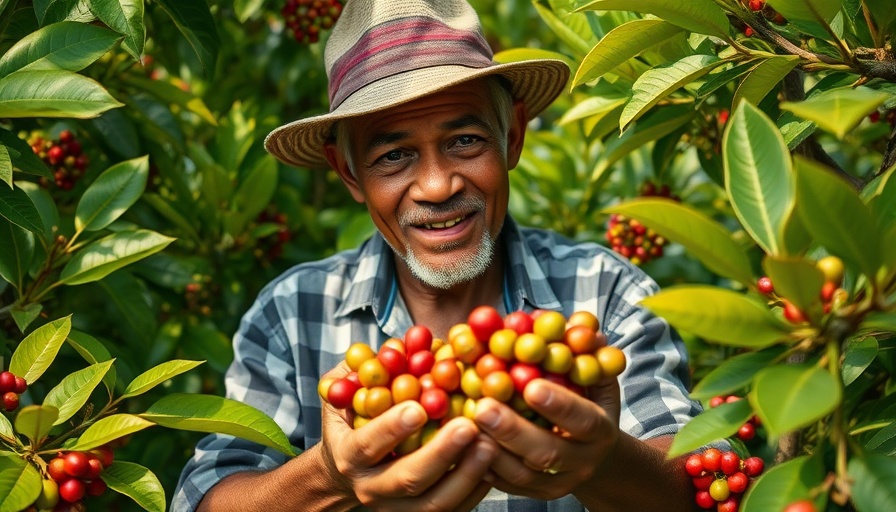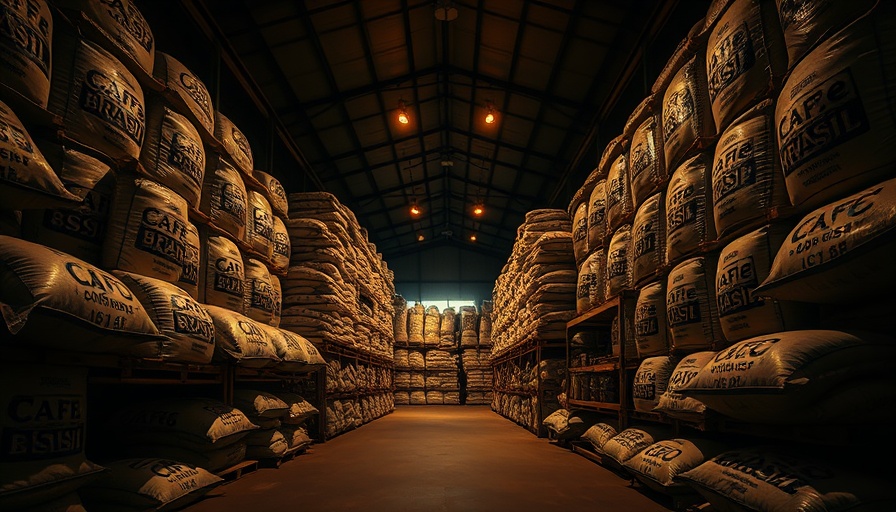
Diving Deep into Forest Coffee: A Sustainable Coffee Innovation
In the pursuit of both agricultural success and environmental preservation, the latest project led by Farm Africa illustrates a transformative model for coffee farming that prioritizes sustainability while boosting farmer incomes. Set in the lush coffee forests of Ethiopia, the initiative reflects a surge of evidence suggesting that agroforestry can yield substantial benefits both economically and ecologically.
From Deforestation to Conservation
The results of a multiyear project in the Ilu Ababor Zone highlight a remarkable 43% reduction in annual deforestation rates. This dimension of the project reveals how communities can effectively curtail their ecological footprint while enhancing their economic viability. The introduction of practices that protect the forest not only conserves vital ecosystems but also allows for the cultivation of high-quality coffee that resonates with consumers seeking ethically sourced products.
Innovative Solutions to Traditional Farming Problems
Farm Africa's approach included training on sustainable methods to grow coffee alongside other forest-compatible products, such as honey and vegetables. This diversification has led not only to a 33% increase in household incomes—significantly aided by enhanced market access and the establishment of cooperatives—but also to improved dietary diversity within participating farming communities. As specialty coffee enthusiasts increasingly prioritize unique flavors and ethical sourcing, these initiatives create exciting opportunities to satisfy consumer trends while benefiting local economies.
Forest Coffee: A New Wave in Specialty Brewing
The drive toward “forest coffee”—coffee cultivated in harmony with forest ecosystems—has yielded notable outcomes. Together, participating cooperatives sold 168.6 metric tons of coffee, 44% of which qualified as specialty-grade, a significant increase from the 20% benchmark before the initiative's launch. This is particularly appealing for consumers exploring high-end espresso bars and gourmet coffee experiences, as they increasingly value rare and ethically sourced ingredients, thus driving demand for features like single origin beans and exceptional coffee craftsmanship.
The Future of Coffee Farming
As the European Union's deforestation-free law takes effect, initiatives like these pave the way for broader impacts, signaling a shift towards sustainable practices that can influence coffee production worldwide. The integrated model of conservation and business development championed by Farm Africa stands as a blueprint for other regions grappling with similar economic and ecological challenges. Farmers now have the tools and knowledge to thrive in an economy that appreciates their efforts and the value of the ecosystems they protect.
As coffee consumers, we can directly contribute to this positive shift by intentionally seeking out premium coffee shops and cafes that prioritize ethical sourcing and sustainable practices. By choosing coffee from initiatives such as those led by Farm Africa, we can enjoy our favorite beverage while also supporting the vital work of restoring our planet's forests.
 Add Row
Add Row  Add
Add 




Write A Comment